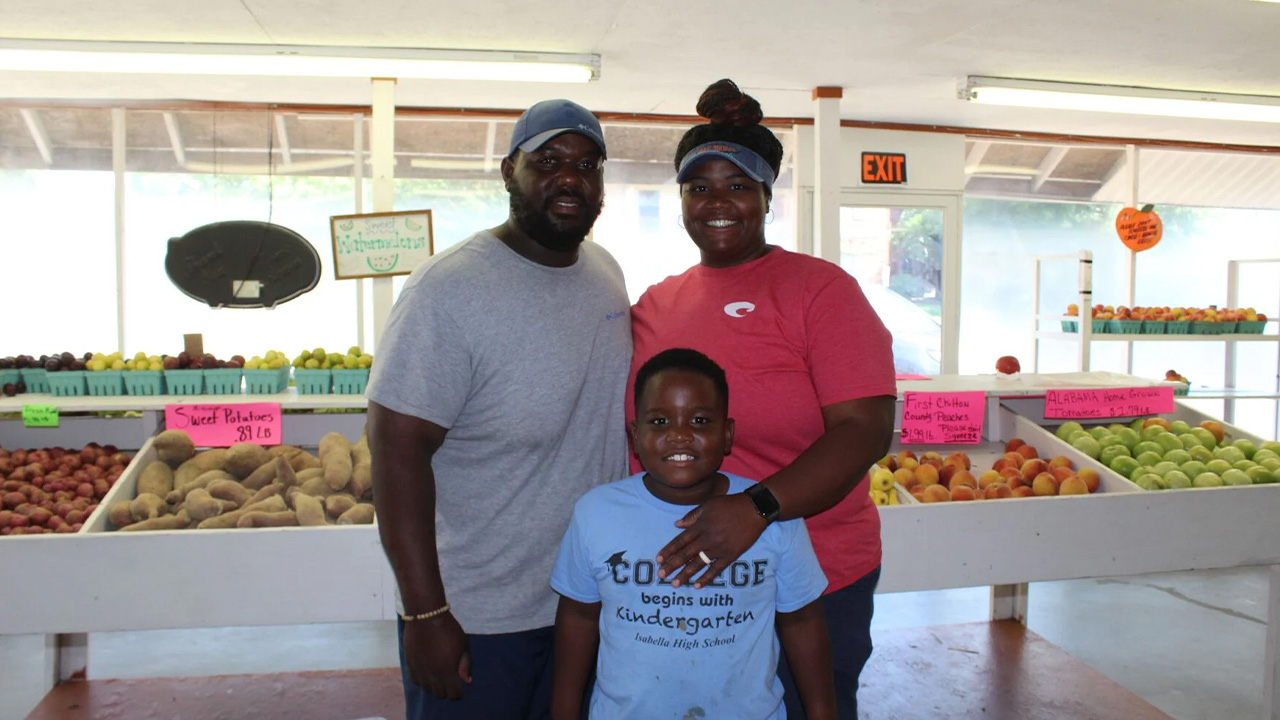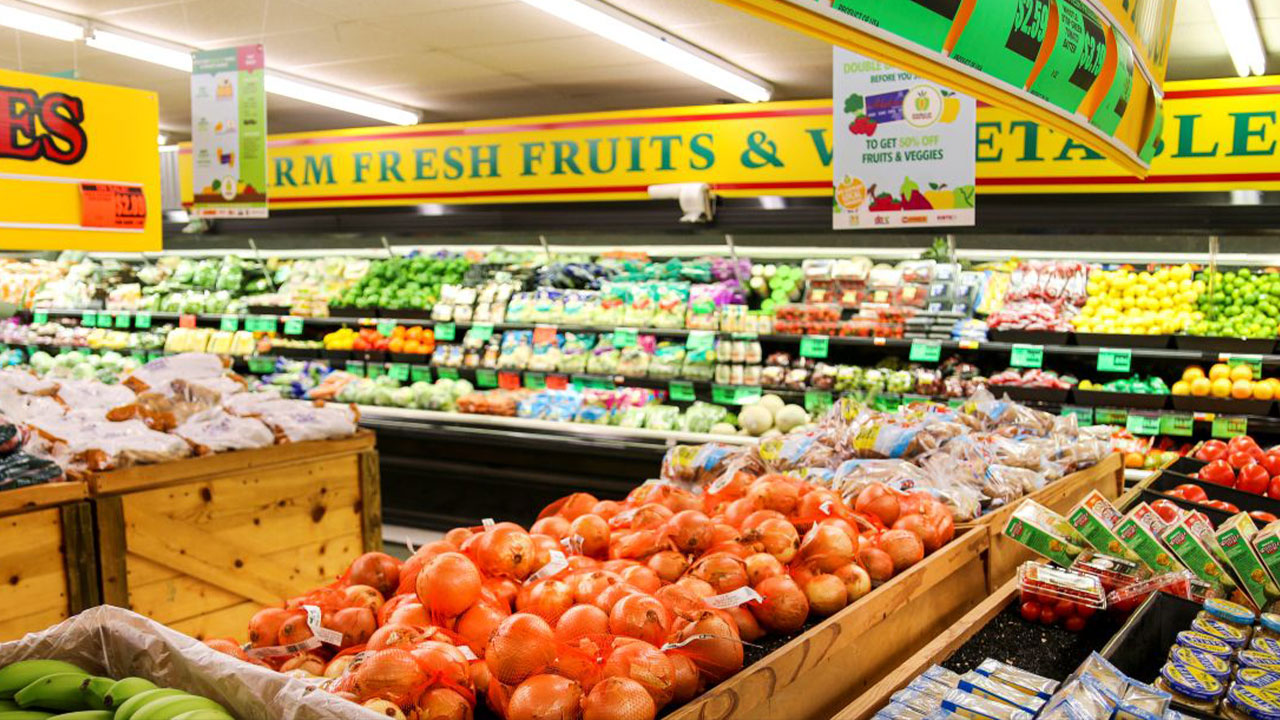content body

Ford Family Farms owners Warren and Rosha Ford grow produce on their own Chilton County farm and sell it at a community market in Selma, Alabama.
When Ford Farms’ produce market in Selma, Alabama, introduced the Double Up Food Bucks Alabama program, shoppers were skeptical.
“They didn’t believe it, because it sounded too good to be true,” said Kara Newby, outreach program manager for Auburn’s Hunger Solutions Institute (HSI). “But this program is real and it’s easy.”
Double Up Food Bucks Alabama is a part of the Gus Schumacher Nutrition Incentive Program, a national initiative funded by the U.S. Department of Agriculture that aims to increase Supplemental Nutrition Assistance Program (SNAP) recipients’ access to fresh produce.
HSI administers Double Up Food Bucks for the state of Alabama, matching federal funding with state support, grants and philanthropic efforts and establishing partnerships with select grocery stores, farmers markets and Community Supported Agriculture farms.
Ford Farms began participating in Double Up Food Bucks just recently, and Newby says the Ford family is already an invaluable partner. Owners Warren and Rosha Ford grow the produce they sell on their own Chilton County farm, and residents of Selma are quite literally ‘eating it up.’
"People from all walks of life come in to do their shopping or pick up grab-and-go cut-up fruit. They are serving a town that is almost like a fresh food desert, and they’re a really important community hub.”
“Downtown Selma doesn’t have a lot of places to eat — there are not many grocery stores, or even restaurants — and when we went to visit, it was a cool community spot,” Newby said. “People from all walks of life come in to do their shopping or pick up grab-and-go cut-up fruit. They are serving a town that is almost like a fresh food desert, and they’re a really important community hub.”
So, how does the program work?
For every dollar SNAP participants spend on fresh produce at participating stores, they get a matching amount, up to $20, to purchase fruits and vegetables later. When they check out at the register, anyone paying with SNAP funds automatically receives a coupon for future use.
Newby said Rosha Ford knows some of her customers don’t trust the program, so she’s going out of her way to share how it works.
“People aren’t used to paper coupons anymore, so they don’t think it’s worth their time,” Newby said. “When her regular customers don’t want them, Mrs. Ford takes time to explain the importance of the coupons and how the program really does give them free produce.”
Housed in the College of Human Sciences, HSI brings together knowledge from a variety of academic disciplines to solve hunger and malnutrition on local, state and global levels. By sharing that knowledge and best practices with program partners, the HSI staff empowers communities to become more resilient.
Susan Hubbard, dean of Human Sciences and executive director of HSI, said it’s people like the Fords who are making a real difference in fighting hunger at a local level.
“The growth of this program has been incredibly encouraging, and it’s due in no small part to the dedication of our community partners,” she said. “Not only have stores like this become vital hubs for residents, but owners like the Fords are going above and beyond to ensure their neighbors understand and benefit from the program. We’ve been fortunate to work with committed retailers who truly care about the well-being of their communities.”





